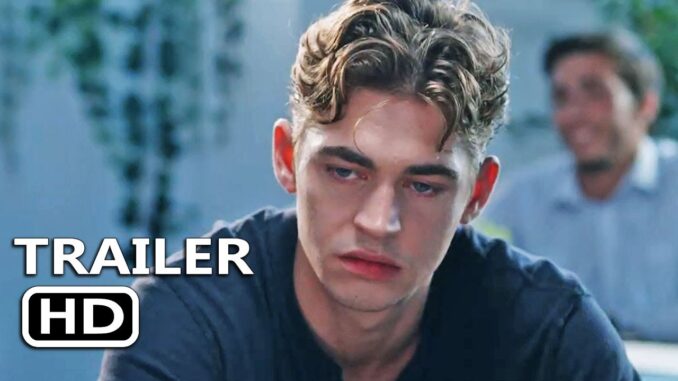
The Unfurling of a Fisted Heart: Hardin’s Healing Journey in After Everything
For years, readers and viewers alike have been captivated, exasperated, and utterly entangled in the tumultuous love story of Tessa Young and Hardin Scott. Their saga, a maelstrom of passion and toxicity, often left audiences pleading for Hardin, the enigmatic and volatile anti-hero, to find not just love, but peace within himself. After Everything, the much-awaited final chapter, delivers precisely this: a poignant, painstaking, and ultimately redemptive journey into Hardin’s soul, proving that even the most fractured hearts can unfurl, piece by agonizing piece. It is an illustrative testament to the power of self-reckoning, a final, cathartic exhale for a character who has spent far too long holding his breath.
From the outset of After Everything, Hardin is a man adrift, anchored only by the ghost of his past. He has achieved literary success, a feat once unimaginable for the troubled boy who penned his pain into pages. Yet, this success is hollow, a paper-thin facade over a gaping void. His writer’s block, a metaphor for his emotional stagnation, is a crucial catalyst. He cannot write a sequel to his story with Tessa because their story, and more importantly, his story, is incomplete. He remains trapped in the cyclical patterns of his anger, his self-loathing, and his destructive need to control, even as Tessa has moved on. The public backlash to his revealing novel, the accusations of exploitation, sting deeply, not just because they are critical, but because they hold a mirror to the unhealed parts of himself he’s desperately tried to ignore. He needs to move past simply reacting to Tessa’s presence and, for the first time, truly become an independent, emotionally whole individual.
The narrative thrust of After Everything hinges on Hardin’s journey to Portugal, a physical pilgrimage that mirrors his internal quest for atonement. His mission: to find Natalie, a woman he cruelly humiliated years prior, and offer a genuine, unforced apology. This isn’t merely about Natalie; it’s about confronting the wreckage of his past, brick by painful brick. His initial attempts are clumsy, laced with the old defensiveness, the ingrained expectation of rejection. He’s still the boy who lashes out before he can be hurt. But Portugal forces him out of his self-imposed prison. He encounters new faces, new perspectives, people who don’t know the “Hardin Scott” of the books, but merely the struggling man before them. These interactions, subtly woven into his quest, chip away at his hardened exterior, demanding a humility and vulnerability he has rarely, if ever, extended to others beyond Tessa.
The true healing begins when he finally reconnects with Natalie. Her initial anger, her raw pain, forces him to truly listen, to truly understand the depth of his transgression. This isn’t about him getting forgiveness; it’s about him accepting responsibility, holding himself accountable without excuse or deflection. The scene where he breaks down, finally admitting the cowardice and fear that fueled his past cruelty, is a turning point. It’s the first time he fully owns his monstrous actions, not as a byproduct of a troubled past, but as deliberate choices he made. This act of genuine contrition, stripped bare of his usual sarcasm and self-pity, is the necessary surgery his soul required. He begins to understand that healing isn’t about eradicating the past, but about integrating it, learning from it, and making active amends.
The culmination of this inner journey is not necessarily a grand, dramatic reunion with Tessa, though their eventual connection is deeply significant. Rather, it is Hardin’s self-forgiveness, his ability to look at himself, scars and all, and accept the man he has become and the man he is striving to be. He learns that his identity isn’t solely intertwined with Tessa; he is a man capable of love, yes, but also of self-love and self-respect. His return to writing, now infused with newfound perspective and emotional maturity, is symbolic of his complete healing. He can finally tell his story, not as a victim or a villain, but as a survivor who has faced his demons and emerged, if not entirely unscathed, then certainly whole enough to live.
After Everything is indeed a much-awaited ending, for it finally grants Hardin Scott the peace he – and his long-suffering fanbase – so desperately craved. It’s a bittersweet, yet profoundly satisfying conclusion that asserts the messy, non-linear reality of personal growth. Hardin’s journey is illustrative not just of overcoming a toxic past, but of the universal human struggle to confront one’s darkest parts, seek true accountability, and ultimately, find the quiet strength to heal oneself. His unfurled heart, once a clenched fist against the world, finally beats with a steady, hopeful rhythm, proving that even after everything, a new beginning is always possible.
